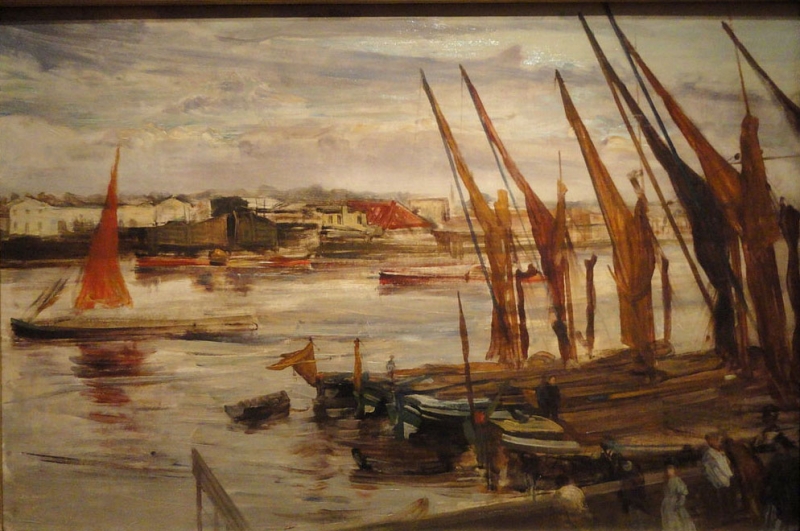Battersea Reach dates from between 1862 and 1863. 1
In July 1862, George du Maurier (1834-1896) said that Whistler was 'painting river pictures for the Greeks.' 2 Battersea Reach was probably one of these, though the purchaser, George John Cavafy (1805-1891), was actually a Turkish merchant.
Many years later Whistler wrote: 'The picture called "Battersea Reach", was painted by me, I cannot remember exactly in what year, but when I was living in Lindsey Row, Chelsea ... on a brilliant autumn evening.' 3
It is dated partly by the technique and by comparison with other Thames paintings, particularly Grey and Silver: Old Battersea Reach [YMSM 046], which is dated 1863.
Last updated: 1st December 2020 by Margaret







